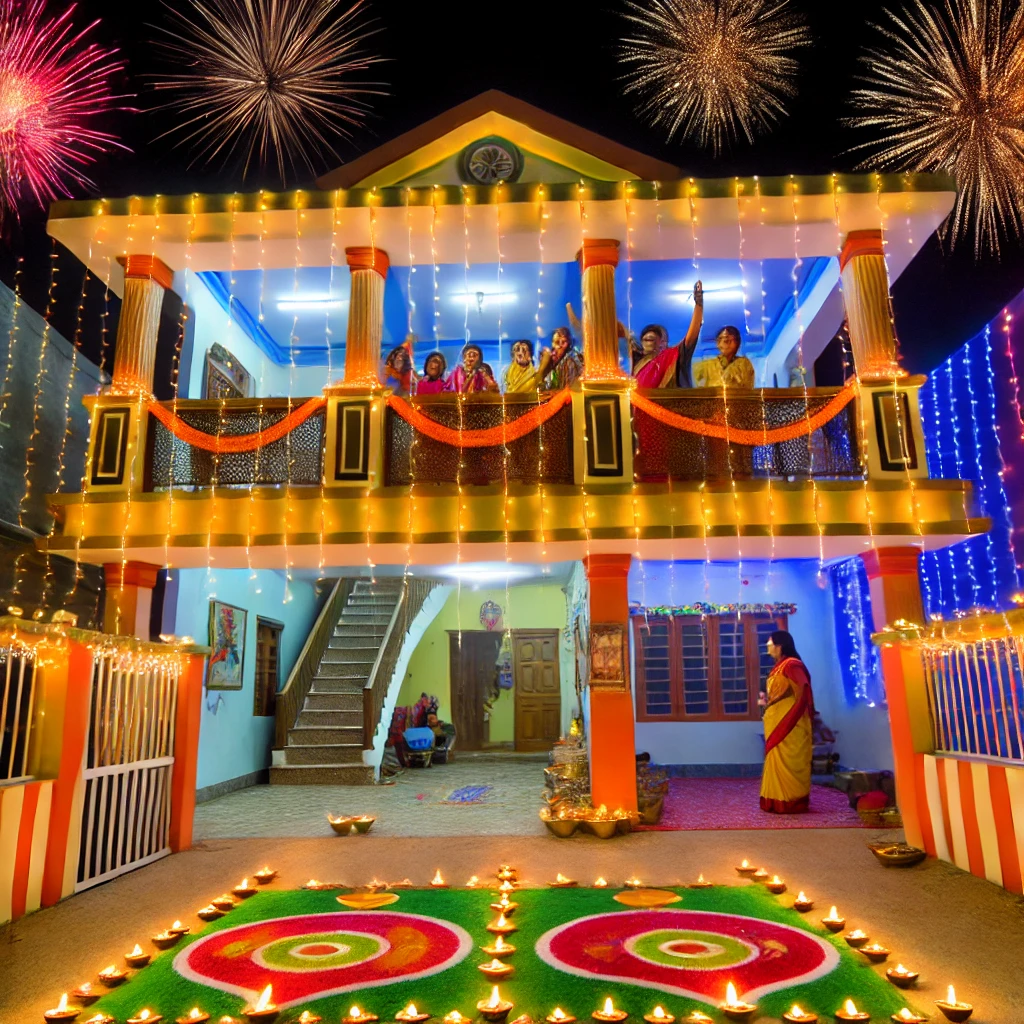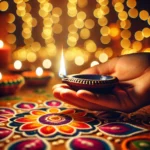Introduction
Diwali, also known as the Festival of Lights, is one of the most significant and widely celebrated festivals in India and around the world. It symbolizes the victory of light over darkness, good over evil, and knowledge over ignorance. The word ‘Diwali’ is derived from the Sanskrit word ‘Deepavali,’ which means a row or series of lights. This article will delve into the various aspects of Diwali, its significance, how it is celebrated, and some tips to make your Diwali celebration even more special.
The Significance of Diwali
Diwali is celebrated to honor different historical and mythological events across various regions in India. The most common legend is the return of Lord Rama to Ayodhya after 14 years of exile and his victory over the demon king Ravana. The people of Ayodhya lit oil lamps to welcome their beloved prince home, and this tradition has continued for centuries.
In other regions, Diwali marks the day when Lord Krishna defeated the demon Narakasura, symbolizing the triumph of good over evil. For the Sikh community, Diwali is also significant as it marks the release of their sixth guru, Guru Hargobind Ji, from imprisonment. For Jains, Diwali is the day when Lord Mahavira attained Nirvana.
How Diwali is Celebrated
Diwali is a five-day festival, with each day holding its own significance:
1. Dhanteras: The festival begins with Dhanteras, a day dedicated to the worship of wealth and prosperity. On this day, people clean their homes and purchase new items, especially gold or silver, as it is considered auspicious.
2. Narak Chaturdashi: Also known as Choti Diwali, this day is believed to be when Lord Krishna defeated Narakasura. People light lamps and burst firecrackers to celebrate the victory of good over evil.
3. Lakshmi Puja: The third day, and the most important, is Diwali itself. Homes are decorated with rangoli (colorful patterns made with rice flour), and oil lamps are lit to invite Goddess Lakshmi, the goddess of wealth and prosperity, into the homes. Families come together to perform Lakshmi Puja, followed by a feast and the exchange of gifts.
4. Govardhan Puja: On this day, people in North India celebrate the victory of Lord Krishna over Indra, the god of rain. In South India, this day is celebrated as Bali Pratipada, commemorating the victory of Lord Vishnu over the demon king Bali.
5. Bhai Dooj: The final day of Diwali is dedicated to the bond between brothers and sisters. Sisters pray for their brothers’ well-being, and in return, brothers give gifts and promise to protect their sisters.
Modern-Day Diwali Celebrations
While traditional rituals remain at the heart of Diwali, modern celebrations have evolved to include more contemporary elements. Families now exchange gifts like electronics, clothes, and sweets. In many cities, community events are organized where people gather to celebrate with music, dance, and delicious food.
However, one of the growing concerns with Diwali celebrations is the environmental impact of firecrackers. Many people are now opting for eco-friendly celebrations by avoiding or minimizing the use of firecrackers, instead lighting up their homes with LED lights, and using organic rangoli powders.
Tips for a Safe and Eco-Friendly Diwali
1. Opt for Eco-Friendly Diyas: Instead of plastic or metal diyas, choose traditional clay diyas. These are biodegradable and support local artisans.
2. Minimize Firecracker Use: Firecrackers contribute to air and noise pollution. Opt for a no-cracker or low-cracker Diwali to reduce the environmental impact.
3. Use Organic Colors for Rangoli: Chemical-based colors can be harmful to the environment. Choose organic or homemade colors for your rangoli designs.
4. Donate to the Needy: Diwali is a festival of sharing and caring. Consider donating clothes, food, or money to those in need to spread the festive cheer.
5. Celebrate with Family: Diwali is a time for family and togetherness. Spend quality time with your loved ones, enjoying traditional games, cooking together, and sharing stories.
Conclusion
Diwali is more than just a festival; it is a time of reflection, celebration, and spreading joy. Whether you follow the traditional rituals or incorporate modern elements into your celebration, the essence of Diwali remains the same – to bring light into the world and our lives. So, light up your homes, hearts, and lives with the warmth and joy of Diwali. Happy Diwali!
This Diwali, let’s pledge to celebrate responsibly, keeping in mind the well-being of our planet and fellow beings.
(FAQs) About Diwali
1. What is Diwali and why is it celebrated?
Diwali, also known as the Festival of Lights, is one of the most important Hindu festivals. It celebrates the victory of light over darkness and good over evil. Diwali is marked by lighting oil lamps, bursting firecrackers, and performing rituals to honor various deities, particularly Goddess Lakshmi, the goddess of wealth and prosperity.
2. When is Diwali celebrated?
Diwali is celebrated on the 15th day of the Hindu month of Kartik, which usually falls in October or November. The exact date varies each year according to the lunar calendar.
3. How long does Diwali last?
Diwali is a five-day festival. The five days are Dhanteras, Narak Chaturdashi (Choti Diwali), Lakshmi Puja (Diwali), Govardhan Puja, and Bhai Dooj.
4. What are the key rituals performed during Diwali?
The key rituals of Diwali include cleaning and decorating homes, lighting oil lamps (diyas), making colorful rangolis, performing Lakshmi Puja, and exchanging gifts and sweets with family and friends. Firecrackers are also burst to celebrate the festival.
5. What is the significance of lighting diyas during Diwali?
Lighting diyas (oil lamps) symbolizes the victory of light over darkness and knowledge over ignorance. It is believed that lighting lamps helps ward off evil spirits and welcome Goddess Lakshmi into homes.
6. What foods are typically eaten during Diwali?
Diwali is a time for feasting and enjoying a variety of sweets and snacks. Common foods include ladoos, barfis, gulab jamun, and savory snacks like samosas and chakli. Each region in India has its own traditional Diwali delicacies.
7. Why do people exchange gifts on Diwali?
Exchanging gifts is a way of expressing love, gratitude, and good wishes. It symbolizes the joy of sharing and strengthens bonds with family and friends. Common Diwali gifts include sweets, dry fruits, clothes, jewelry, and home decor items.
8. How can I celebrate Diwali in an eco-friendly way?
To celebrate Diwali in an eco-friendly way, you can:
– Use clay diyas instead of plastic or metal ones.
– Avoid or minimize the use of firecrackers to reduce pollution.
– Use organic or natural colors for rangoli.
– Choose gifts that are sustainable and environmentally friendly.
– Recycle decorations and reduce waste wherever possible.
9. What is Bhai Dooj, and how is it related to Diwali?
Bhai Dooj is the fifth and final day of Diwali, dedicated to the bond between brothers and sisters. On this day, sisters pray for their brothers’ well-being and prosperity, while brothers give gifts to their sisters and promise to protect them.
10. Is Diwali celebrated outside of India?
Yes, Diwali is celebrated by the Indian diaspora all over the world, including in countries like Nepal, Sri Lanka, Malaysia, Singapore, Fiji, the United Kingdom, the United States, and Canada. In many places, it is a public holiday, and people celebrate with cultural programs, community events, and traditional rituals.
11. Can non-Hindus celebrate Diwali?
Yes, Diwali is celebrated by people of various religions and cultures. While it is a Hindu festival, Sikhs, Jains, Buddhists, and even non-religious people join in the festivities. Diwali’s universal themes of light, joy, and the triumph of good make it a festival that anyone can appreciate and participate in.
12. Why is Diwali called the Festival of Lights?
Diwali is called the Festival of Lights because the entire festival revolves around the lighting of oil lamps (diyas) and fireworks. These lights symbolize the victory of light over darkness and are meant to bring joy and prosperity into homes and communities.
These FAQs should help you understand the various aspects of Diwali and how to celebrate it meaningfully and responsibly.


